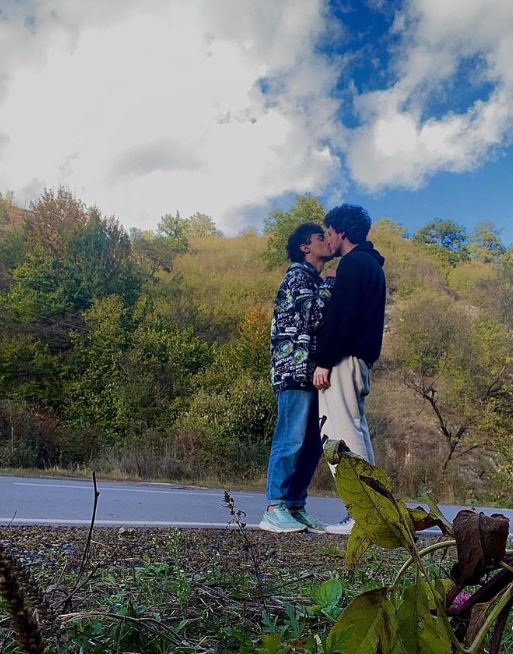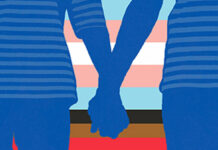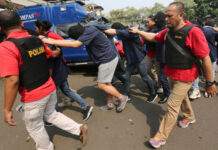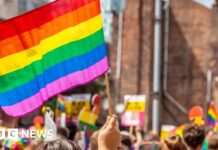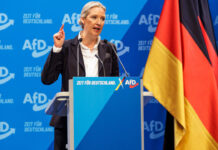Editor’s Note: The tragic suicide of a young gay couple in Yerevan last month has reignited important conversations surrounding homophobia in Armenian society. Their names were Arsen and Tigran. They took their own lives on October 20, 2022 after Arsen—a minor—shared a series of photos of their loving relationship on social media with the caption, “Happy end: we decided together to share pictures and the decision for our future action.” In light of this distressing news from our homeland, the Armenian Weekly underscores its pledge to uplift all voices across the Armenian Diaspora. The following personal essay was written and submitted to the Armenian Weekly for publication on condition of anonymity, which we will honor and respect to protect this author’s privacy and abiding love for the Armenian church.
In 2022, it is no longer a shock to readers of the Weekly that there are gay, queer and LGBT Armenians. I don’t think it will come as a shock that we continue to participate in organizations, associations and community life, or that we too date (surprisingly often) amongst ourselves, as well as outside of the Armenian community. I think to 10 years ago, when I was just coming to terms with the fact that my attraction to men was never going to go away, and when I had exactly one other gay Armenian friend.
Ten years ago, the word “gay” was more often used as a slur than a neutral adjective, and “gay marriage” (later re-labeled “same-sex marriage” and finally settling as “marriage equality”) was just a quirky trait of certain European countries and a few US states that was referenced, at best, as a joke in sitcoms. I and many other gay Armenian adolescents felt very alone in that time, but the odar world moved quickly while the Armenian community struggled to catch up. Many of us, however, had the luxury of discussing these things with our friends at school or in anonymous chat rooms online. Gradually, our hushed conversations and anonymous chats turned to normal volume, within earshot of our parents, sometimes even with our parents.
We adapted, and some of us developed friend groups. Our straight peers seemed to care less and less, and one would even hear the word “faggot” employed less often at our summer camps, scouts and athletic competitions. People started showing up to AYF Olympics with their significant other of the same gender. Some of them got married and even have children at this point.
I cannot speak for everyone, but I really don’t feel alone or ostracized in Armenian spaces, except in one place: at church. As I understand it, the Armenian Apostolic Church officially subscribes to an ideology of “love the sinner, hate the sin,” emphasizing the action of same-sex physical relations as the problem and pitying the individual who is afflicted by these “troublesome” feelings and desires. In practice, the church follows what one could refer to as a policy of “don’t ask, don’t tell,” meaning that, much like the US military in the Clinton/Bush eras, my sexual orientation, my dating life and my lack of an Armenian girlfriend, fiancée or wife have never been directly or indirectly questioned at church (as far as I can remember). The problem for them is, with fewer and fewer people participating in institutional religious life, why would one search for reasons to push someone out? Nobody wants to pull the trigger, especially if I’m not talking about it or bothering anyone. As long as they can at least claim ignorance, and I don’t breach that tacit agreement, nobody has to have any uncomfortable conversations or worse, find official ways to condemn my “lifestyle choices” or push me out.
I’m usually fine with this — a position which sometimes confuses and often enrages my non-Armenian gay friends. But I do not want problems. I do not want to make a statement. I do not want to start a revolt. I simply want to go to badarak, light my candle and say the same prayers in the same language as my great-grandparents and their parents in Western Armenia. I want to commune with my people. I want to communicate with God the way I learned as a child. I want to close my eyes, believe that the last 100 years in exile was just a side plot and pretend that our lives were never interrupted.
I have remained a member of the Armenian church. As my siblings, cousins and childhood friends have almost all one-by-one realized their own atheism, rejected institutional religion or simply lost interest, I have almost ironically grown even more (institutionally) religious and more (individually) spiritual. I attend badarak most weeks, and just like everyone else there, I proclaim my faith in God by reciting the havadamk, confess my sins before communion, pray for my family, my peers, even my enemies (as difficult as it is), and I mourn our dead relatives, friends and siblings in the homeland.
I believe in God, and I am gay. Nobody asks. I don’t tell.
It’s usually not an issue, and my life in this regard is actually quite uneventful, but every once in a while, I am reminded that none of my gay peers are in the pews with me. Something reminds me of how truly alone I am in the one place I never thought I would feel alone.
Such was the case after the recent tragic deaths of Arsen and Tigran, a young couple in Armenia.
I am relatively detached from social media, but I recently logged into a platform to see if a college friend had given birth yet. I still don’t know if she did, because the first thing I saw was a post from someone I had dated in Armenia announcing and describing the deaths of Arsen and Tigran. The world is small, the Armenian world is smaller and the queer Armenian world is even smaller still.
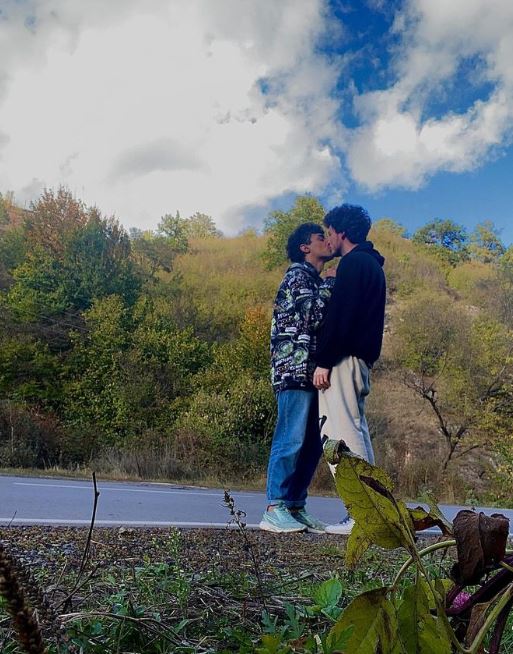
When I realized I was looking at the actual final photos that the couple had posted before they died by suicide—one together, another of their rings—I could not control my tears. Despite the fact that basically everything else in my life is going better than it ever has, for the next few days I had crying fits multiple times a day—not just at home, but at work and on the subway.
Just like we all have, because of the Genocide and the Artsakh War, I cried so much that at some point, I no longer knew if I was crying for the dead or for myself.
I had to take a walk. I found myself at a nearby Catholic church that I often visit during my lunch breaks for a moment of quiet prayer and meditation. When dealing with difficult emotions, I often turn to prayer. They say “God helps those who help themselves,” and I often find that in expressing life issues verbally, I am often able to find a resolution myself. But after I lit a candle and sat down to pray, I couldn’t articulate anything but a single word, which I repeated over and over again between sobs. Inchou? Inchou? “Why?”
I don’t know the exact facts about the speculations surrounding Tigran and Arsen’s last days, but if it is true that their home lives had become so torturous and unbearable that they ran away, and if it is true that they felt that they had exhausted all other options, I am even more crushed. Their story is depressingly similar to the general status of our people: they were surrounded by closed borders on all sides with waning resources and nowhere to go. External aid was nowhere to be found. The Armenian homophobes who commented on their Instagram post that their death was a good thing, sound disgustingly similar to the Turks and Azeris who applaud the mutilations and decapitations of Armenian freedom fighters and civilians.

Aside from the obvious injustice that Armenian homophobia remains strong enough to lead to these unnecessary deaths, I feel there is a compounding injustice that I cannot look past. The institution which plays a large (if not the largest) part in the perpetuation of homophobia in Armenia, and therefore also is culpable in this instance, is also the institution which the majority of the Armenian world relies upon to process grief and death. What I’m saying is, I do not know if the boys were allowed an Armenian funeral, firstly because this was a suicide, and secondly because they were gay.
To process death and grief, I turn to the church. The karasounk (the end of a 40-day period of mourning) and a hokehankist (the “rite of repose of souls”) help me and many other church-goers (and non-church-goers alike) process loss. I considered submitting their names for the hokehankist, but I ultimately couldn’t bring myself to do it. I admit that I’m weak, and I’m not ready to make waves. I’m not ready to “tell” when I have not been “asked.” A Coptic friend of mine was formally excommunicated from her church when her family found out she was in a long-term relationship with another woman. She said she sometimes drives hours to attend services in a church where they won’t recognize her. Unfortunately, her options are becoming increasingly limited. I’m not ready to jeopardize access to my closest connection with God, which I have been unable to re-create in full in various non-Armenian churches I’ve visited.
I cannot fully mourn within the church, and I don’t know how to mourn without the church.
The realization of the compounding injustices of the church’s culpability and its probable denial of death rituals made me feel even more alone. So too, did the seeming unlikeliness that anyone else would come to the same conclusion. After all, I have no gay Armenian friends in the pews with me.
I didn’t want to hear my odar friends asking, “Why didn’t they just leave Armenia?” I also didn’t want to hear my straight Armenian friends saying, “It’s sad, but we have bigger problems right now.” I cannot fully mourn within the church, and I don’t know how to mourn without the church.
I asked an Armenian friend to meet up with me one evening. He has had very little contact with the church since he refused to keep hiding his boyfriend of several years from his parents.
“This really makes you think about the limits of ‘tolerance,’” he told me. When I asked him to elaborate, he explained, “Well, as queer people, you and I have managed to figure out a way to be ‘tolerated’ and live as Armenians, but at the end of the day, we still don’t know if we’ll be allowed to die as Armenians.”
Hearing another person articulate this fear that I have been avoiding as I continue my badarak attendance and church involvement made me understand exactly why I have been crying so much for these two boys whom I never met. How will they be buried in the society that hated them and made them feel so trapped and despised? How will any of us be buried? I am crying because their deaths remind me that for many of my queer Armenian siblings, their today is my 10 years ago, when I was considering doing the same thing. I am crying because of my survivor’s guilt and because of the hopelessness and hatred of our people. I am crying because of the loneliness of a young man standing in a pew and the loneliness of two boys standing on a bridge.
I will not submit their names at church because I am afraid of upsetting the delicate balancing act of my presence there. But I will light two candles and whisper their names by myself at the end of the hokehankist, because if I don’t, I’m afraid nobody else will.
Rest in peace, Arsen and Tigran.
Աստուած հոգիները լուսաւորէ։

